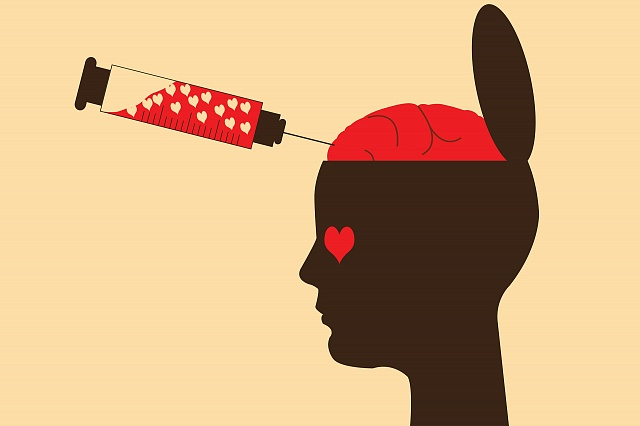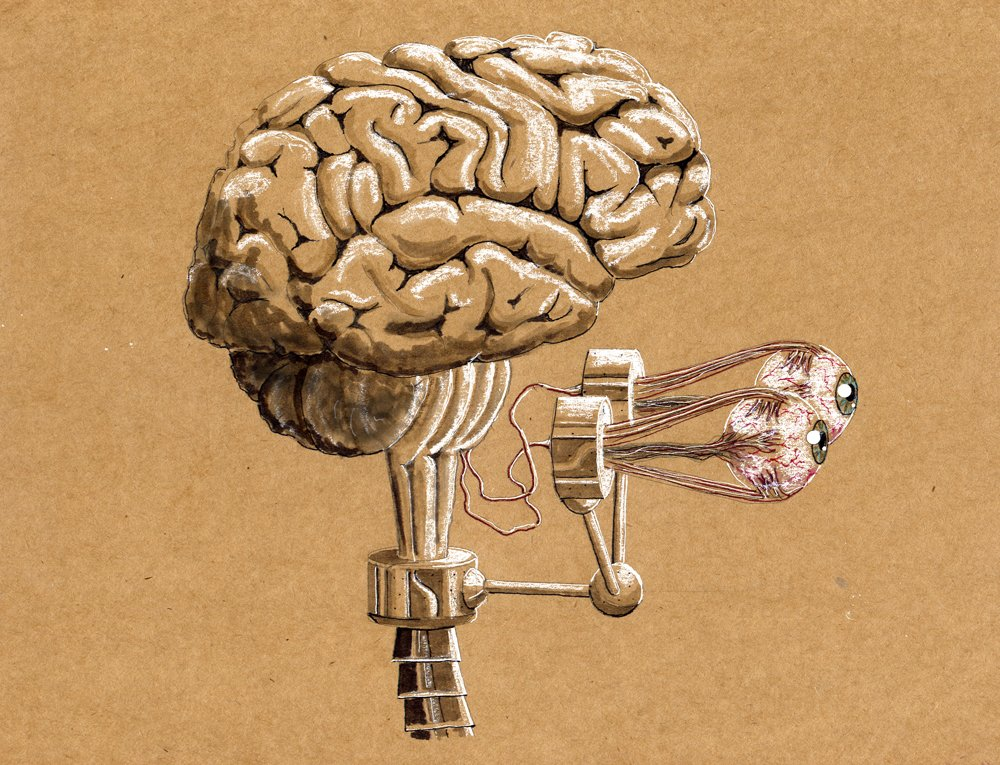
In this article, you will learn about what has a positive effect on the functioning of the brain.
1. Our brains love specific goals. As soon as you formulate for yourself a specific goal, task, miracles will immediately begin. There will be funds, opportunities and time for its implementation.
And if you, having set the main goal, are able to split it into components, and calmly, gradually, constantly, step by step you will carry them out - not a single problem will resist you.
2. Positive emotions. Emotions are short-term subjective reactions of a person to the world around him (joy, anger, shame, etc.). Feelings - a stable emotional relationship to other people, phenomena. Feelings are associated with consciousness and can be developed and improved.
Emotions are exciting - they increase the vital activity of a person, and depressing - that is, suppressive life processes. Positive emotions motivate a person to take action. They arise from satisfaction. Start looking for simple joys of life - and stimulation will begin in the brain - the release into the body of large doses of endorphins, hormones of pleasure, which means satisfaction, which means positive emotions that excite and increase your vital activity, and allow thought processes to flow calmly, give rise to a good mood and positive mood for the world. It is human nature to seek joy - this is not a named instinct for self-preservation.
3. Movement and fresh air. In the fresh air, the blood is more actively saturated with oxygen, carries oxygen and nutrition to the brain cells faster, the processes of oxidation and metabolism intensify, the energy we need so much is released, and new biochemical compounds are born. The brain makes us move in order to save ourselves and us, of course. Give pleasure to think, create, solve complex problems, have memories.
There is no movement of fresh air, the blood turns sour - the brains "turn sour".
4. Simple meals in moderation. Simple foods are easier to obtain, prepare, and digest. The brain says (if you want to hear it): buddy, 50% of all the energy received by the body is spent on vision, 40% on digestion and disinfecting food toxins, and only 10% remains on movement, the work of the mental and nervous systems, the fight against billions microbes. If we eat all the time, when will we think ?!
It is useful to eat soups - they improve digestion, metabolism, fill the stomach faster, which gives a feeling of fullness with a smaller amount of food.
5. Sleep, rest. The brain, like the entire human body, needs rest. With physical exertion, rest is a mental exercise, with intellectual - physical exercise, from moral fatigue - a change of places.
A good rest is a dream. Sleep is the most mysterious state of a person, without sleep a person cannot live, although sleep is called "a little death".
In a dream, consciousness turns off, but the person continues to think, his thinking changes and obeys other laws. This is due to the fact that in a dream, the subconscious comes to the fore. The brain analyzes what happened over the past day, structures it in a new way and gives the most likely outcome. This result, perhaps, was predicted long ago, but consciousness did not accept it, it was pushed into the subconscious and extracted from there in a dream.
It is assumed that the brain can be given the setting for the night: to make a prediction, a decision, a way out, a conclusion, for just a pleasant dream. Unnecessary impressions, an obsessive state are "washed away by the night protective wave" of the brain. People who constantly see prophetic dreams are most likely good analysts.
6. Addiction. The brain cannot instantly adapt to drastically changed alien circumstances: new living conditions, new work, study, place of residence, company, food, new people. Enter any activity gradually, calmly, getting used to it. Every day, doing the best you can, you will achieve the impossible. The habit of learning and working is gradually and constantly. Sudden understanding and insight always presupposes knowledge, which may not always be fully realized.
Often parents, teachers, bosses, loved ones (and sometimes we ourselves), not understanding all the complexity of addiction, demand from us (and we from others) an instant result. It doesn't work that way. It is best not to start, calm down, say good-naturedly to yourself or others - not all at once, "wait, kids, just give a time, you will have a squirrel, there will be a whistle." And slowly start moving, accelerating as you get used to.
The brain itself creates stereotypes (habits, skills, conditioned reflexes). Stereotypical thinking greatly helps to live - no need to re-solve standard problems. Every day, performing the same actions, we turn them into a habit, a skill, a skill, a conditioned reflex. Not turning on the brain to secrete saliva at the sight of a lemon, close the front door, the tap, wash the dishes, flinch from the sharp beep of the car, click the cross when you need to close the program window.
Instinct and a little life experience make us, from childhood, create stereotypes of friends, foes, lovers. It helps in the “sea of people” to choose someone, to gather your team and stop there, freeing up time and energy for other life goals. Stereotypes help to communicate with strangers, get along with parents, raise their children.
7. Freedom. Even if it is limited by the instinct of self-preservation and social rules that are useful primarily to ourselves. Freedom is independence from fears and stereotypes. Of course, we need stereotypes in the form of unconditioned and conditioned reflexes - we will not, having burned ourselves, stick our hand into the fire a second time - it hurts! But if circumstances require you to show your contempt for pain and death - burn your right hand, like the Roman "military" Muzio Scovola. And not be afraid to think in your own way and in a new way; defend your way of thinking, your life, your appearance, your loved ones. And do not blame the whole world for misunderstanding and non-recognition of you "all this extraordinary." And allow others to be different from you, to have their own way of thinking, outlook on life.
8. Creativity - the ability of the brain, using and relying on the old, to create a new, its own, dissimilar. Creativity is a favorite work of the brain, making us akin to God, making us gods. Creativity in the form of science studies, describes, explains the world around and a person, puts forward ideas, finds ways and means of translating them into life, looks into the future and is ready to change it for the better.
Creativity in the form of art - combining labor and emotions, it reflects reality in artistic images. Art unites people: the writer, sharing his life, feelings, describing other people, shows that we are not alone in our experiences. The artist offers to look at how the environment, we ourselves can be beautiful or ugly. The musician, with the sounds of his heart, makes our soul respond with a tuning fork.
Art awakens our imagination, enriches our inner world, helps to see the world in a different light. Art creates ideals.
9. Division, seeding, communication, hugs. Life is constant cell division, constant metabolism and distribution of information. The work of the nerve cells of the brain of neurons is "love". They constantly "embrace", touching dendrites (processes, "hands") to each other, constantly transmit energy (nerve impulses) information about everything (biochemical compounds). It is harmful not to share, you cannot demand, it is confusing. You need to be friends with your head, you need to be friends with people.
This is the essence of the brain - it constantly needs to receive information and give it back.
The brain is an important organ, and now you know what is good for it. Try to put it into practice, share later what came of it.

